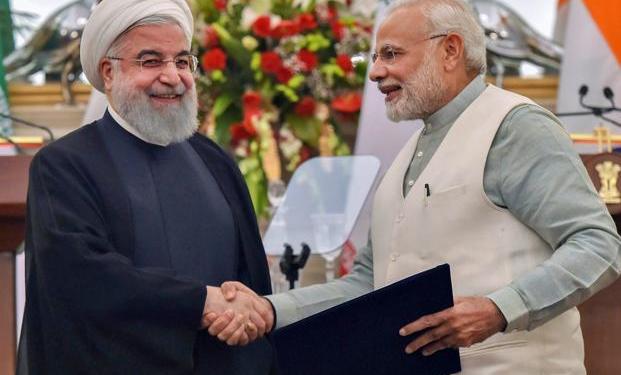India has recently signed an MOU with Iran to pay in rupees for crude oil imports. Indian refiners will transfer payments in rupees to Indian government owned United Commercial Bank (UCO) account of the National Iranian Oil Co (NIOC) while half of these funds will be set aside for settling payments for exports of Indian goods to Iran. India shall be exporting foodgrains including wheat and soyabean, medicine and medical equipments to Iran.
Iran is the only seller of crude oil that provides 60 days of credit for purchases and therefore is preferable for India to trade with. Iran is the third largest exporter of crude oil to India while India is its second largest importer after China. India currently imports 83 per cent of its oil needs, the largest share of which is supplied by Iraq, Saudi Arabia being the second largest supplier. Iran’s crude oil export to India increased exponentially from 12.7 million tonnes in 2015-16 to 27.2 million tonnes in 2016-17. India’s imports from Iran had risen from 5.62 Million tonnes in the first quarter of FY 2017-18 to 8.14 million tonnes in Q1 of 2018-19.
However, India’s crude oil imports from Iran reduced after Donald Trump’s fresh sanctions on the Islamist nation took effect from August 6 and further tightened in November. India faced the threat of sanctions from the United States under the CAATSA (Countering American Adversaries Through Sanctions Act) law of the US which India refused to recognize.
Mike Pompeo, Secretary of State, USA, announced on November 5 that the Trump administration would be exempting India among other nations as it showed considerable reduction in imports from Iran. Under the said 180-day exemption from US sanctions, India has restricted oil imports from Iran to 300,000 bpd or 15 Million tonnes in a year, from 452,000 bpd or 22.6 million tonnes bought in FY 2017-18.
The worst ever sanctions were imposed by the United States on Iran on November 5, blocking European banking channels through which India had been making its payments. Shipping firms are also unwilling to transport Iranian oil and hence Iran has been using its own ships. The sanctions have already reduced Iran’s exports by 1 Million barrels per day.
The sanctions-ridden country is adopting every means to bypass the crippling impact on it’s economy and has also threatened to close the Strait of Hormuz if the US resorts to blocking Iranian oil exports while on its quest to pressure Iran to cease it’s ballistic missile tests, accept restrictions on its nuclear programme and cut off funding to militant organisations in the region. In an interview this week Iranian President Hassan Rouhani said, “If someday, the United States decides to block Iran’s oil (exports), no oil will be exported from the Persian Gulf.”
Earlier in 2013 when sanctions tightened on Iran, India paid 45 per cent of its bill in Rupees while the remainder was kept pending until 2015 when the dues began clearing off once restrictions eased. However, the latest MOU will boost Indian exports and will also have a positive impact on the Make In India while paying in Rupees the other half of the crude oil import bill from its third largest supplier.




















